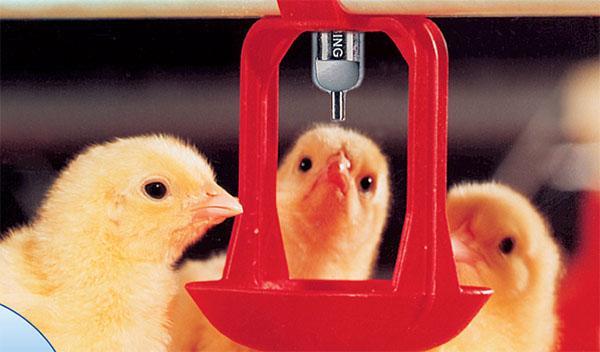In what conditions are broilers kept?
 Broilers are hybrid poultry specially bred to produce large volumes of meat. There are two types of hybrid broilers "Cobb-500" and "Ross 308". There are also meat breeds of chickens such as habart. Broilers differ from meat breeds in a faster set of muscle mass. If the meat breed of chickens is grown for 4-6 months, then broilers are beaten already on the 52nd day of keeping. Therefore, if you want to start chickens, but you do not have time for long-term rearing, broilers are the best option for you.
Broilers are hybrid poultry specially bred to produce large volumes of meat. There are two types of hybrid broilers "Cobb-500" and "Ross 308". There are also meat breeds of chickens such as habart. Broilers differ from meat breeds in a faster set of muscle mass. If the meat breed of chickens is grown for 4-6 months, then broilers are beaten already on the 52nd day of keeping. Therefore, if you want to start chickens, but you do not have time for long-term rearing, broilers are the best option for you.
Conditions of detention
Broilers are best kept in brooders on a mesh floor, as they breathe less ammonia and get sick. Day-old chicks can be purchased at the hatchery, but then the broilers will need additional care. It is better for novice poultry farmers to purchase 10-day-two-week-old chickens, since they will be vaccinated against many diseases at the poultry farm by this age.
The disadvantage of keeping two-week-old chicks is that they will already be accustomed to eating only dry food. It is not advisable to feed such chickens with grass.
Chickens should always have clean water in the brooder, filter it using mechanical filters or chemical disinfection using oxidizing agents. If you feed broilers with untreated water from a well, there is a high risk of contracting infectious diseases to chickens. Change the water every day, or better get nipple drinkers.
Broiler treatment and disease prevention
To prevent disease, provide air circulation and sunlight to the brooders in the chicken coop. So you get rid of rickets, death on your feet. Day-old chickens need to be given antibiotics to drink. For the prevention of diseases in adult chickens, mix millet soaked in vodka into the feed. Add 50 grams of vodka per kilogram of millet, mix and let it brew for a day at room temperature.
It is important to remember that this millet should be given to broilers a little at a time, otherwise they will burn the esophagus. Such millet will help against coccidiosis and other parasitic diseases.
Do not fill the brooder completely, leave room for broilers to move or they will weaken and start to fall to their feet.
If the broiler stretches its neck, urgently remove it from the rest of the livestock and give it antibiotics. Also give a sick broiler a solution of iodine and potassium permanganate.